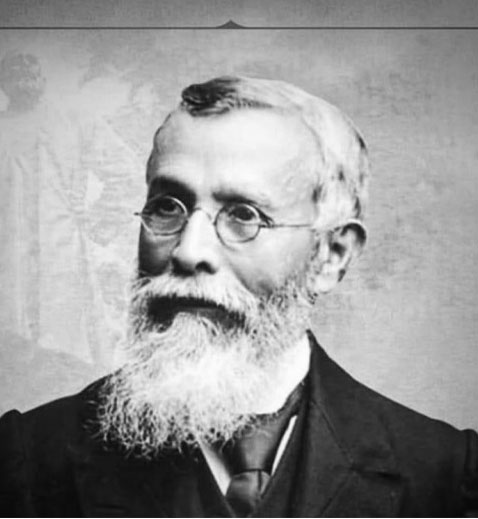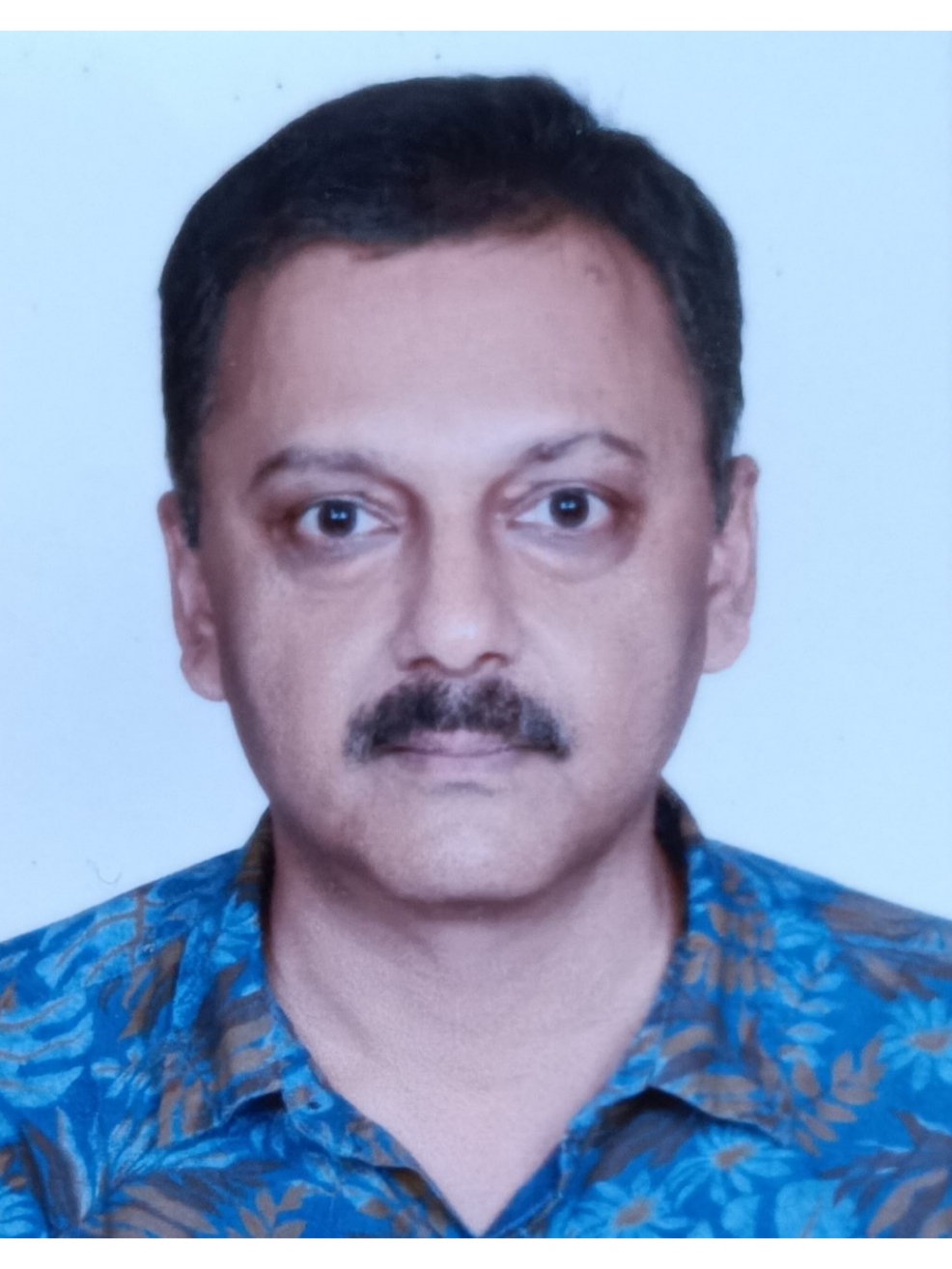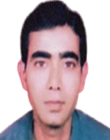The Electronics Department came into existence in 1999 with the introduction of the B.Sc. (General) course in Electronics or Electronics (General). Subsequently, in 2001, a B.Sc. (Honours) course in Electronic Science, also known as Electronics (Honours), was introduced. From the session 2023-24, Major, Minor and IDC courses in Electronics have been introduced, following the recommendation of the new education policy (NEP). All the courses have been running successfully till date.
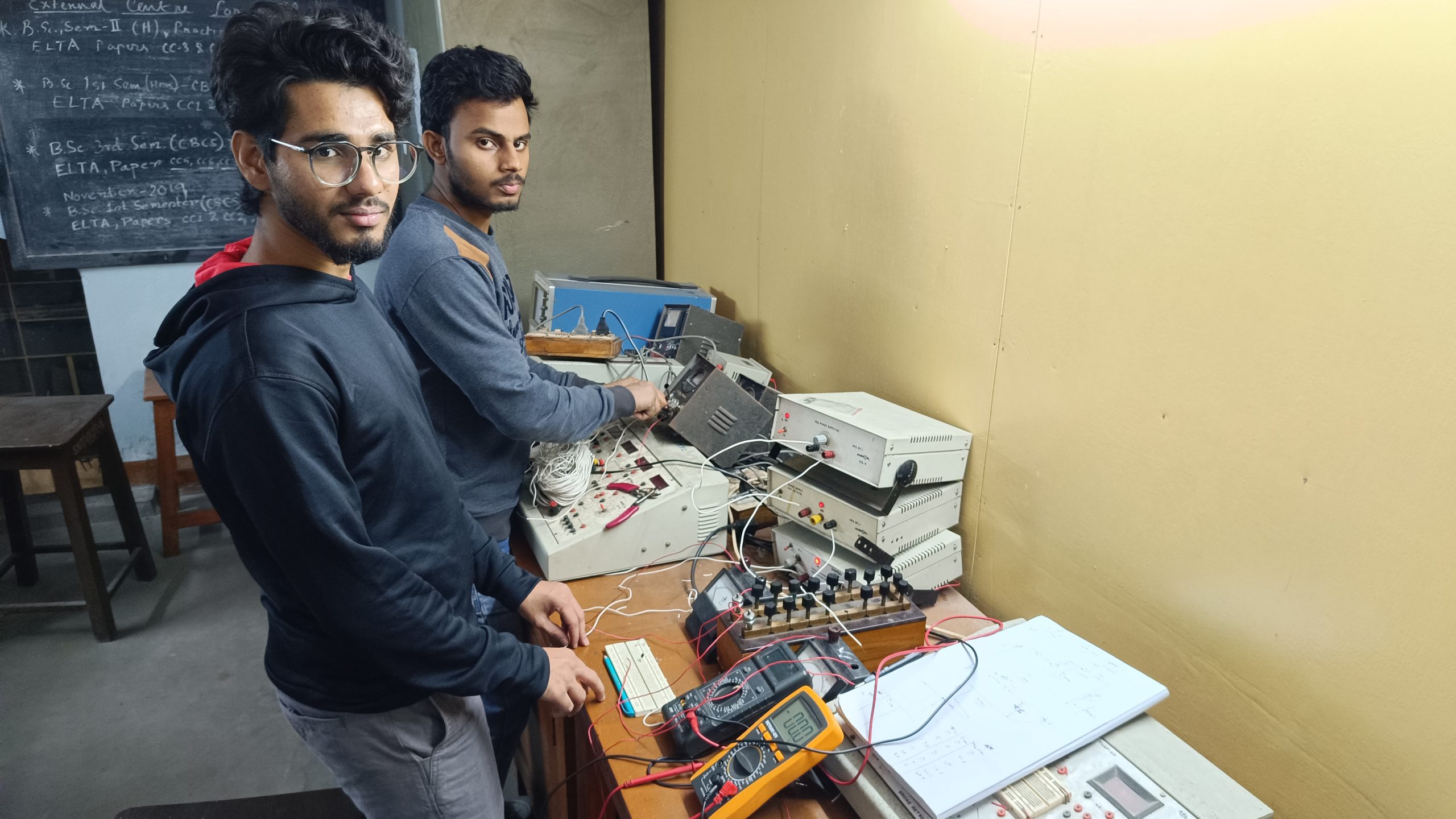
The department has two dedicated laboratories for conducting practical experiments as also to conduct university practical examinations as an external centre. The department also shares classrooms and a dedicated computer laboratory room with the computer science department. The department also shares computer facilities in the form of computers and printers with the Computer Science department. It has a dedicated high speed wi-fi connection for use by the teachers and students alike. The department has a departmental library of its own with a good collection of books which are borrowed by the students on a regular basis.
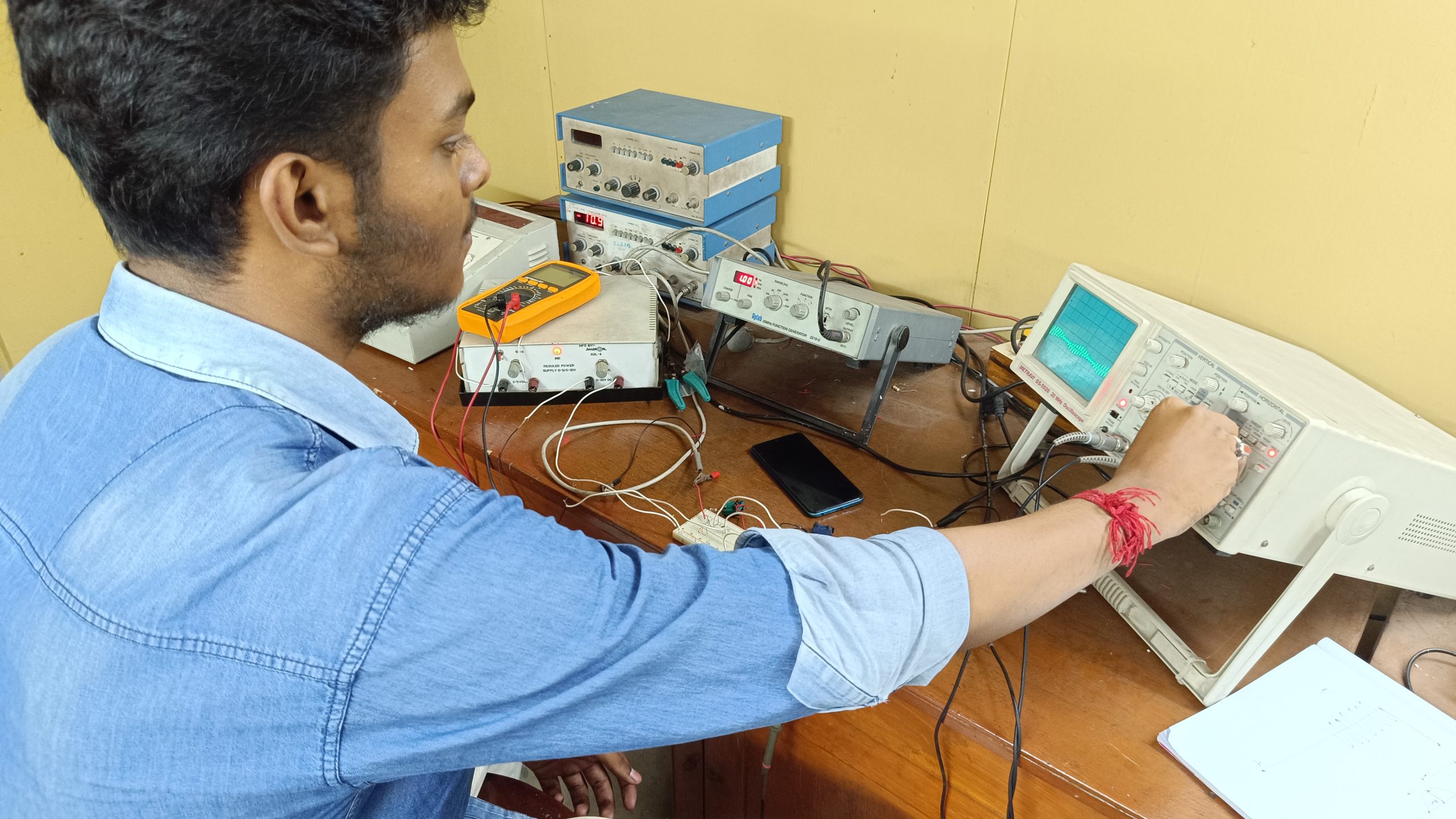
In addition to physical classes inside the departmental premises, online classes through Google meet are also held. Learning Management Systems (LMS) like Google classroom and Moodle are made use of to supplement classroom teaching. In addition to theoretical topics, students pursuing Electronics learn to perform a host of practical experiments with an array of electronic instruments. They learn circuit simulation using electronic simulators and numerical computing using MATLAB or Scilab. They also have the opportunity to develop and hone their programming skills using languages like Python, C, Fortran and Java, as part of a revamped curriculum.
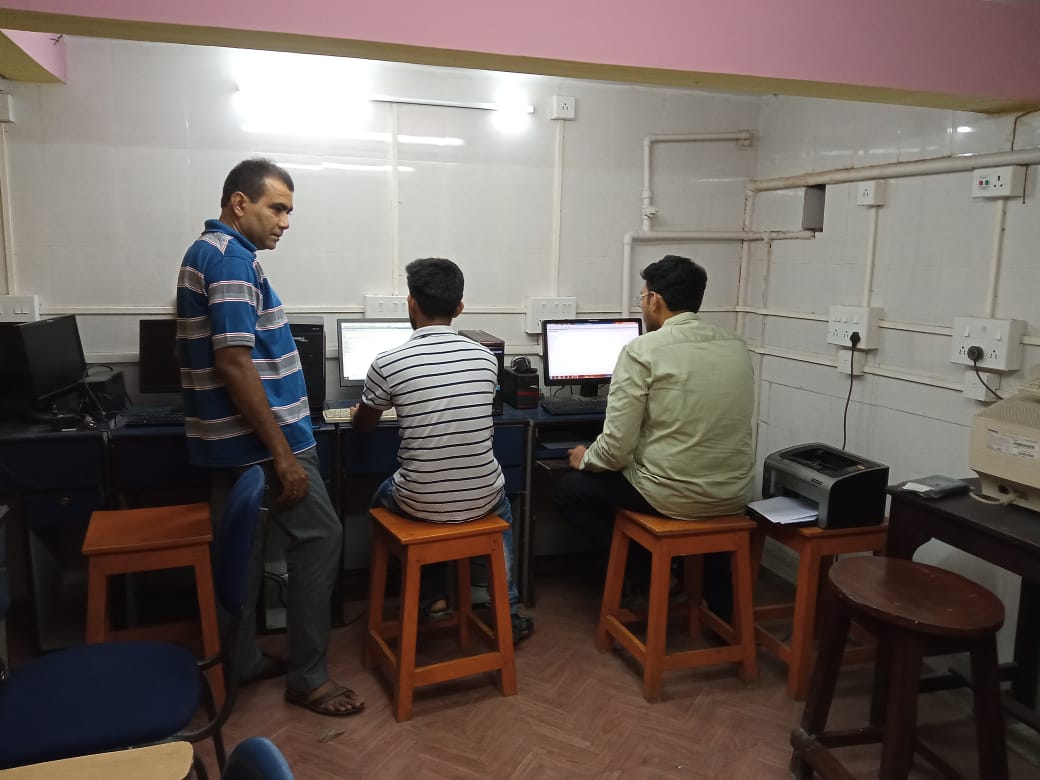
Students of Surendranath Evening College pursuing courses in Electronics acquire the skillset required to take up jobs in the industry or to pursue post graduate degrees like M.Sc. in Electronics, M.Sc. in Information Science, M.Sc. in Data Science etc. Over the years, many students of the department have performed well in the university exams, have gone on to pursue higher studies and found good jobs in academia, industry or in other fields, both in India and abroad.
Courses presently being taught under the aegis of CBCS (Choice Based Credit System) Framework introduced by the UGC (University Grant’s Commission) in 2018 are:
(i) 3 Year (6 semester) B.Sc. (Honours) course in Electronics (previously named Electronic Science)
(ii) 3 Year (6 semester) B.Sc. (General) course in Electronics
CBCS syllabus for courses (i) and (ii) above:
Courses presently being taught under the aegis of the Curriculum and Credit Framework (CCF) of the New Education Policy (NEP), introduced from the session 2023-24 are:
(i) 4-year (8 semester) Major course in Electronics with/without Research and with exit option
(ii) 3-Year (6 semester) MDC (Multi Disciplinary Course) with Electronics and with exit option
(iii) One semester IDC (Inter Disciplinary Course) as a subject of choice
NEP CCF syllabus (for first two semesters) for courses (i), (ii) and (iii) above:
Students pursuing Electronics Honours or Major can also choose to have any one subject from Physics, Computer Science and Mathematics, as a secondary minor or general subject.
All the courses have been running successfully till date.
Question Bank for students (with relevant links):
A video resource to help introduce students to Python programming through an example
More study materials may be found below:
Latest publications:
Abhijit Poddar:
* ‘A Smartphone based Remote-Lab cum Topic-Specific Learning
Management System’ IEEE Xplore, 2022 IEEE Region 10 Symposium (TENSYMP), Mumbai, India, 2022, pp.
1-6, doi: 10.1109/TENSYMP54529.2022.9864424.
* ‘A Smartphone Controlled Experiment to determine the Energy Band
Gap of a Semiconductor using Novel Graphical Techniques’, IEEE Xplore, pp. 256-261, 2020, doi:
10.1109/IBSSC51096.2020.9332211.
* ‘Covid-19 Data Visualization and Data Analytics with a Smart
Standalone Mobile Application’, IEEE Xplore, pp. 1-6, 2020, doi:
10.1109/INDICON49873.2020.9342143.
* ‘A microcontroller interfaced smartphone application to perform and
analyze a laboratory experiment in real time’, IEEE Xplore, pp. 1-6, 2020, doi:
10.1109/UPCON50219.2020.9376531.
* ‘Reducing Carbon Footprint with a Knowledge-Based Smart Graphing
Application’, IEEE Xplore, pp. 163-168, 2020, doi: 10.1109/INDISCON50162.2020.00043.
* ‘Taking E-learning to the lab: Simulating a lab experiment in Physics’,
IEEE Xplore, pp. 741-744, 2016, doi: 10.1109/IC3I.2016.7918059.
Debasis Singha:
* ‘Sensitivity study of staggered heterojunctions based SRG TFET
sensor’, 2017 Devices for Integrated Circuit (DevIC), 2017, pp. 681-684, doi:
10.1109/DEVIC.2017.8074036.
Add-on courses:
The YouTube resource below has been created to help learn how to make an app without writing a line of code:

